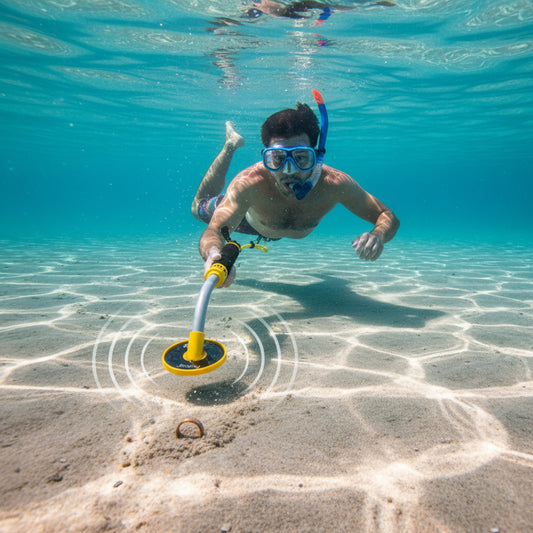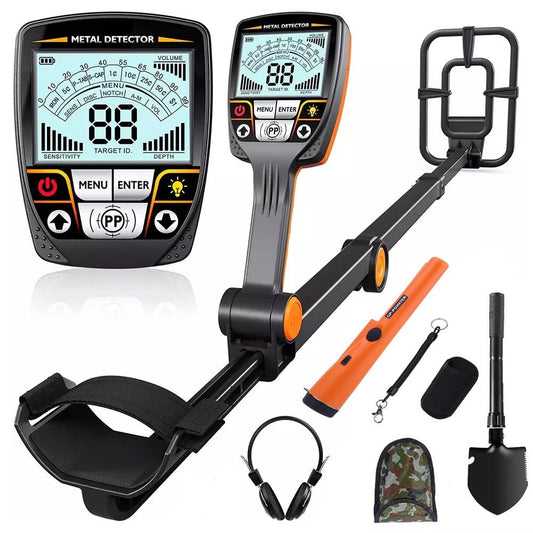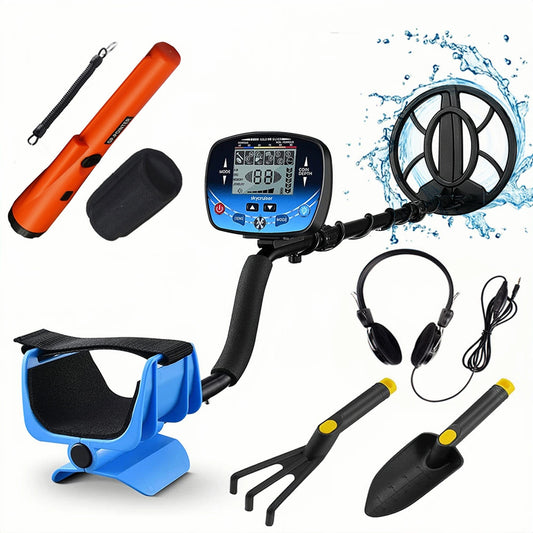
Where to Find Gold Deposits in Florida: A Treasure Hunter’s Guide
Share
Florida is known for its pristine beaches, rich history, and abundant natural beauty.
While it’s not traditionally associated with gold mining like California or Alaska, many treasure hunters wonder, "Are there any gold deposits in Florida?" or "Where to find gold deposits in Florida?"
This guide will explore the possibilities of finding gold in Florida, provide insights into the best locations, and offer tips for successful gold hunting.
Are There Any Gold Deposits in Florida?
The short answer is that Florida does not have significant natural gold deposits like those found in states with mountainous terrain or historical mining activity.

Gold is typically formed in regions with volcanic activity or tectonic movement, which Florida lacks due to its flat geography and sedimentary rock composition.
However, while Florida doesn’t have native gold deposits, there are still opportunities to find gold through other means:
-
Shipwrecks: Florida’s coastline is home to numerous shipwrecks from the Spanish colonial era, some of which carried gold coins and bullion.
-
Lost Treasures: Stories of buried pirate treasures and lost caches abound in Florida’s history.
-
Gold Panning: Some rivers and streams may contain trace amounts of gold brought down from other regions.
Where to Find Gold Deposits in Florida

While native gold deposits are scarce, here are some places where you can search for gold-related treasures:
1. Coastal Areas
Florida’s coastline offers unique opportunities for finding gold:
-
Shipwreck Sites: The Treasure Coast (stretching from Sebastian to Stuart) is famous for shipwrecks carrying Spanish gold.
-
Beach Detecting: Beaches near shipwreck sites often yield coins and jewelry washed ashore.
2. Rivers and Streams
While not known for significant gold deposits, trace amounts of gold can sometimes be found:
-
St. Johns River: One of Florida’s largest rivers; some areas may contain small amounts of transported gold.
-
Apalachicola River: Historically used for trade; potential for lost treasures near its banks.
3. Historical Sites
Florida’s rich history includes tales of pirates and settlers who may have hidden treasures:
-
Fort Myers: Known for pirate activity during the colonial era.
-
Key West: A hotspot for pirate legends and lost treasures.
4. Private Land
With permission from landowners, private properties near historical trade routes or settlements may yield interesting finds:
-
Old homesteads
-
Farmlands near rivers
How to Search for Gold in Florida

If you’re wondering where to find gold in Florida, here are some tips for successful treasure hunting:
1. Beach Metal Detecting
Beaches near shipwreck sites are ideal for detecting:
-
Focus on areas with high tide erosion.
-
Use a waterproof metal detector designed for saltwater conditions.
2. Gold Panning
While not as productive as other states, panning in rivers can still yield trace amounts of gold:
-
Use a portable sluice box or pan.
-
Focus on bends in rivers where heavier materials settle.
3. Research Historical Maps
Study old maps to identify potential treasure hotspots:
-
Look for areas near colonial settlements or trade routes.
-
Investigate stories of pirate activity along the coast.
4. Join Local Clubs
Connect with local metal detecting or treasure hunting clubs:
-
Gain insights into promising locations.
-
Learn techniques specific to Florida’s terrain.
Equipment Needed for Gold Hunting in Florida

To maximize your chances of finding gold or related treasures in Florida, invest in the right equipment:
-
Metal Detector: Choose one designed for beach detecting or underwater use.
-
Gold Pan: Essential for panning trace amounts of gold in rivers.
-
Sand Scoop: Ideal for retrieving targets on beaches.
-
GPS Device: Helpful for marking promising locations.
-
Protective Gear: Sunscreen, hat, and sturdy footwear for outdoor comfort.
Challenges of Finding Gold Deposits in Florida
While treasure hunting can be exciting, there are challenges unique to finding gold in Florida:
-
Lack of Native Deposits: Unlike states with active mining history, natural gold is scarce.
-
Environmental Conditions: Beaches can be crowded during peak seasons; rivers may have limited access points.
-
Legal Restrictions: Always check local laws regarding detecting on public lands or protected areas.
Legal Considerations
Before searching for gold deposits in Florida:
-
Obtain Permissions: Always secure permission before detecting on private property.
-
Follow Local Laws: Detecting on state parks or protected lands often requires permits.
-
Report Significant Finds: Historical artifacts must be reported under state regulations.
Conclusion: Exploring Gold Hunting Opportunities in Florida
While native gold deposits are virtually nonexistent in Florida, the state offers unique opportunities for treasure hunters willing to explore its beaches, rivers, and historical sites. From Spanish shipwrecks along the Treasure Coast to stories of pirate loot near Key West, there’s plenty of potential for exciting discoveries.
By investing in the right equipment, researching historical maps, and practicing responsible hunting techniques, you can enjoy this fascinating hobby while respecting the environment and local regulations.
Whether you’re searching for trace amounts of gold or hoping to uncover lost treasures from centuries past, Florida has something to offer every treasure hunter willing to dig deeper—literally! Happy hunting!




